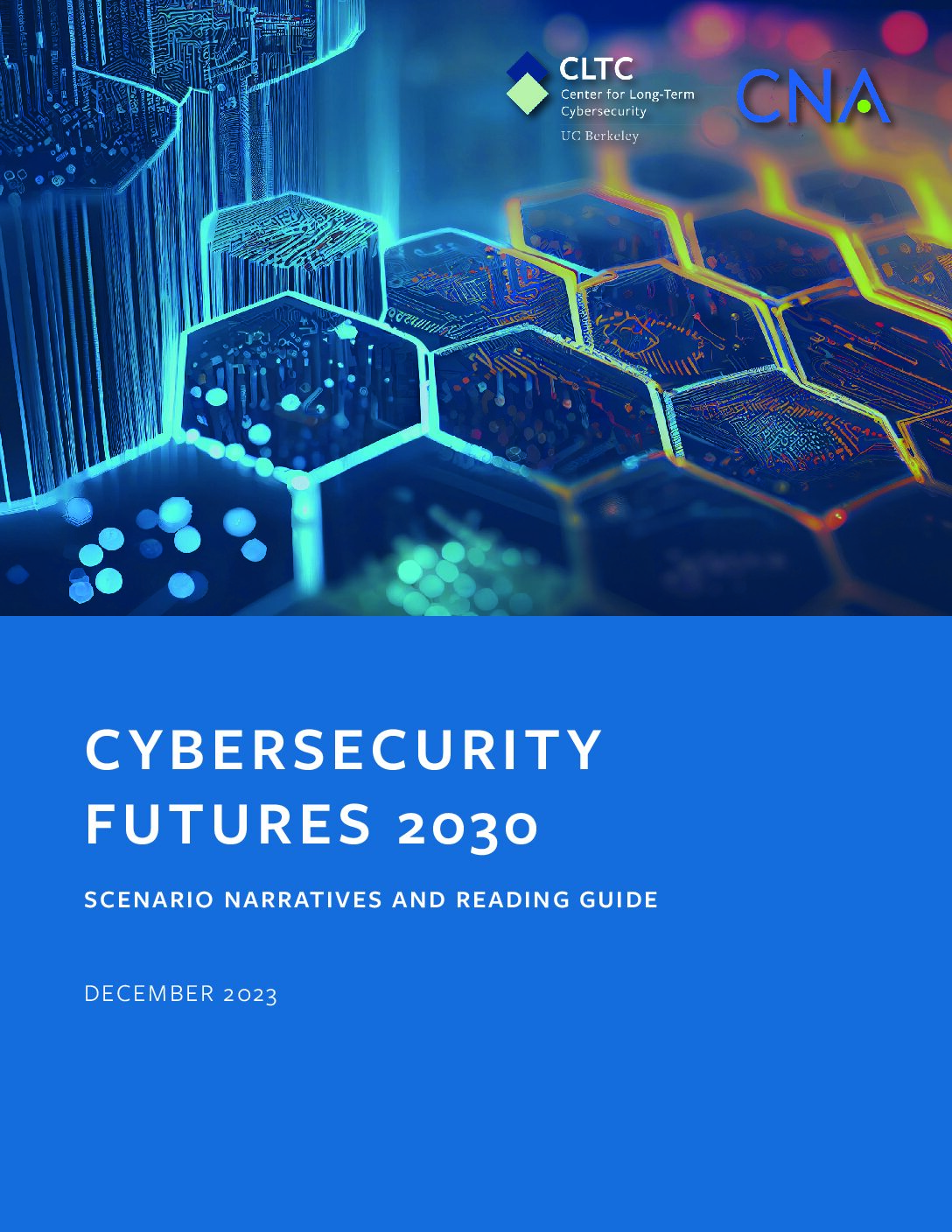
The global cybersecurity landscape is rapidly changing – and by 2030, it will once again be radically transformed. To better understand how technological, political, economic, and environmental changes are impacting the future of cybersecurity for governments and organizations, the UC Berkeley Center for Long-Term Cybersecurity (CLTC), the World Economic Forum Centre for Cybersecurity, and CNA’s Institute for Public Research have collaborated on Cybersecurity Futures 2030: New Foundations, a foresight-focused research initiative that aims to inform cybersecurity strategic plans around the globe.
Sponsored by Fortinet, Meta, Okta, and Repsol, the Cybersecurity Futures 2030 project includes insights that are broadly applicable across countries and regions. The findings are based on discussions held at a series of in-person workshops conducted throughout 2023, including in Dubai, UAE; Washington, D.C.; Kigali, Rwanda; New Delhi, India; and Singapore, as well as a virtual workshop with participants from multiple European countries and the U.K. The workshops were centered around discussion of four scenarios that portray diverse “cybersecurity futures,” fictional (but plausible) depictions of the world roughly in the year 2030. The scenarios were designed to explore trade-offs in goals and values that decision-makers will have to contend with in the near future.
“The goal of Cybersecurity Futures 2030 is to promote digital security as a strategic priority, and understand how systemic cybersecurity challenges are experienced and addressed in different regions around the world,” said Ann Cleaveland, Executive Director of the UC Berkeley Center for Long-Term Cybersecurity. “We will use these findings to help decision-makers in government, industry, academia, and civil society seize opportunities and mitigate risks just over the horizon.”
“Through Cybersecurity Futures 2030, we are helping governments, the private sector, and academia shape a future-focused research and policy agenda for the next five- to seven years,” said Dawn Thomas, a managing director and research analyst in CNA’s Institute for Public Research.
“Staying abreast of rapid developments in the cybersecurity landscape, and their ramifications across the globe, is a challenging and continuous task. However, we are confident that through Cybersecurity Futures 2030, which leverages the collective intelligence of a wide community of leaders dispersed across the globe, we have developed crucial strategic foresight that can help inform cybersecurity decision-making for years to come.” said Akshay Joshi, Head of Industry and Partnerships, Centre for Cybersecurity, World Economic Forum.
The product of this collaboration is a report, “Cybersecurity Futures 2030: New Foundations,” that provides a range of key recommendations for decision-makers to address perennial digital security challenges, including data privacy, talent development, and sustainability, and stresses that online spread of mis- and disinformation are becoming core cybersecurity concerns. The researchers call out opportunities for improved public-private partnerships to combat cyberattacks and information operations; improved “secure by design” principles; increased investment in cybersecurity talent and training; and improved standards to incentivize interoperability in cyber- and AI security. “Leaders will need to strategically and tactically use regulation to guard against the downsides of AI products as they rise in prominence and take meaningful measures to combat [mis-, dis-, and mal-information] before it further degrades trust and unity,” they wrote.
In the next phase of this project, the researchers will be working with decision-makers to generate additional priorities and think more broadly about how findings from this report could re-shape organizations’ futures. Grappling with these kinds of questions should be a defining focus in 2024 for the C-suite, boards, and government agencies internationally. Individuals and institutions interested in learning more should contact CLTC at cltc@berkeley.edu.
On December 6, CLTC, CNA, and the World Economic Forum Centre for Cybersecurity hosted a public webinar to discuss the report’s findings. Visit this page to see a recording and recap from the event.






